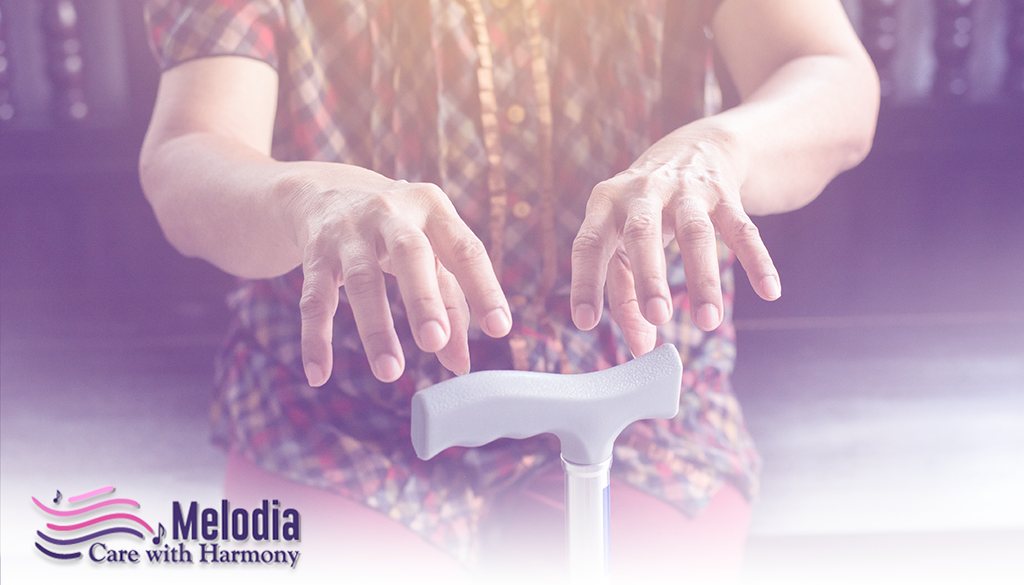What Is Dementia?

Dementia is defined as the loss of cognitive function (thinking, memory, reasoning) to the point where it interferes with a person’s daily life and activities. Some Dementia patients lose control of their emotions and may modify their personality. The degree of Dementia ranges from the mildest stage, in which a person’s function is just beginning to deteriorate, to the most severe level, in which a person is fully reliant on others for fundamental life functions.
Elderly people with Sally Dementia grow increasingly prevalent as they age (about one-third of the overall population over the age of 85 may have some kind of Dementia), but this is not normal ageing. Many persons who have lived since the 1990s have no indications of Dementia.
Dementia Symptoms

Dementia symptoms arise when formerly healthy neurons or nerve cells in the brain stop functioning, lose connections with other brain cells, and die. Everyone loses some neurons as they age, but patients with Dementia lose many more.
The following are some of the signs of Dementia:
- Memory loss, poor judgement, and confusion
- Difficulties speaking, understanding, and expressing ideas, as well as remembering and writing.
- Get lost while wandering around a familiar area.
- Difficulties in managing money properly and paying bills
- Repetition of questions
- To refer to familiar objects, use unexpected wording.
- Normal daily tasks take time to complete.
- Loss of interest in everyday activities and events
- Delusions or hallucinations
- Don’t care about other people’s sentiments, therefore act rashly.
- Imbalance and movement issues
People with intellectual or developmental challenges can develop Dementia as they age, and the signs might be extremely difficult to detect. Consider a person’s existing abilities and check for changes over time that may suggest Dementia.
The types of brain changes that may develop determine the Dementia disease and associated Dementia. Some brain abnormalities have been linked to some types of Dementia in studies, although the underlying cause is unknown in the majority of instances. Rare genetic mutations can cause to Dementia in a limited proportion of people.
Although no preventive interventions have been proved, a generally healthy lifestyle can help lower the risk factors connected with these conditions.
Types Of Dementia

Dementia develops as a result of a variety of illnesses and circumstances. Neurodegenerative disorders cause progressive and permanent neuronal and brain function loss. There is currently no cure for these disorders.
The five most frequent types of Dementia are as follows:
- Alzheimer’s disease is the most prevalent Dementia diagnosis in the elderly. This is caused by brain abnormalities such as amyloid plaques and aberrant protein buildup known as tau tangles.
- Frontotemporal Dementia is a rare type of Dementia that typically affects people under the age of 60. It is linked to aberrant levels or shape of the protein’s tau and TDP43.
- Lewy body Dementia is a kind of Dementia characterized by the aberrant accumulation of a protein called -synuclein, which is known as Lewy bodies.
- Vascular Dementia is a kind of Dementia caused by damage to blood arteries in the brain, which prevents blood and oxygen from flowing to the brain.
- A combination of two or more types of Dementia is known as mixed Dementia.
Dementia Effects On Physical Ability And Functioning

Physical performance is mostly preserved in the early stages of Dementia. It is fairly uncommon for people with early Dementia to walk more than a mile at a time while still appearing to function normally. It is frequently difficult to diagnose early Dementia simply by looking at it. In fact, they don’t appear to have any issues.
People’s physical fitness begins to deteriorate when Dementia progresses to the middle stage. The brain loses the ability to move muscles, making it impossible for the body to feed itself. In this case, the expression “use it or lose it” refers to muscle capacity. The physical ability to contain urine and defecate is diminished, as is the mental ability to interpret the body’s cues.
Physical fitness is substantially compromised in the final stages of Dementia disease. Walking and movement are significantly restricted. Most persons with this stage of Dementia require to feed by others, and few have swallowing problems or nausea. They don’t use enough muscle. Finally, they are faced with end-of-life.
Joint Contracture In Dementia

Joint contractures impair the finest of lifestyles and cause pain and impairment. Many patients with severe Dementia can be seen in a fetal position. This role causes flexion of the muscle tissues at joints, causing the muscle tissues to shorten, resulting in degenerative tissue alterations, and eventually dementing to irreparable deformity. The development of joint contractures in Dementia’s disease, wherein it’s far thought that the natural growth of DEMENTIA ends with sufferers within the fetal role. It has been proposed that this fetal involvement is responsible for the high prevalence of contractures seen in end-stage Dementia’s disease. However, in many cases, contractures are caused by a lack of appropriate preventative strategies.
The natural progression of Dementia’s disease in a patient is assumed to halt at the embryonic stage. The increased incidence of contractures seen in end-stage Dementia’s disease is thought to be due to this prenatal position. In many situations, however, it is a lack of Dementia equate preventive methods that causes contractures and the patient to assume the fetal position.
The progression of Dementia’s Dementia to the terminal segment typically results in substantial bodily changes, resulting in a dementia first-class of life.
Contractures in Dementia patients are often increased in a handful of joints and a couple of extremities. End-of-life Dementia’s disease patients are more likely to develop contractures because they like their weakness, pain, and apraxia.
With growing illness, these patients eventually become bed-bound and have issues with pain, skin integrity, private care, and sociability.
Contractures are caused by the muscles and connective tissue that surround the joints shortening. This is a process associated with immobility. Contractures are classified into several categories. Tightness of the skin, muscles, ligaments, tendons, or joint areas that interferes with regular activity or mobility is one of the symptoms. Scarring and a lack of muscle or joint use owing to inactivity or immobility are the most typical causes of this ailment. Depending on the type of contracture, it might cause abnormalities if left untreated.
The anatomical relationship between muscles and joints alters when sarcomere structure deteriorates and intramuscular connective tissue remodels at the cellular level.
It is not uncommon for the upper limbs to be implicated in a range of psychological problems that may appear to be actual rheumatic disease at first. Unfortunately, many rheumatologists are unaware of these fascinating disorders.
Clenched Fist In Dementia

Clenched fists are a rare hand condition characterized by tight finger contractures. Dementia’s diseases are frequently preceding factors in this syndrome; however, they do not explain the severity of the contracture. Stretching your fingers can be unpleasant and aggravate hygiene issues. Patients with clenched fists are more likely to suffer from psychiatric illnesses. The patient may express an intense wish to be disconnected.
Clenched fist in Dementia occurs when people, particularly the elderly, become physically inactive for long periods of time. Months before the actual contraction, muscle fibers begin to break. Contracture can be avoided by bending the limbs of a person at risk of contracture and completing basic exercises. Clenched fist, on the other hand, occur in contracted muscles and are irreversible.
Along with Dementia, symptoms of psychiatric problems, as severe hand abnormalities, have been described. Multiple personality syndrome has symptoms of clenched fist after minor discomfort and stiffness. SHAFT syndrome, clenched fist arises in individuals who went multiple surgical operations.
Hospice Care For Dementia

Hospice care focuses on comfort and respect at the end of life. They are care and support services that can be extremely beneficial to those suffering with end-stage Alzheimer’s disease and other dementias.
Melodia hospice team evaluates the state of dementia or Alzheimer’s disease patients and modifies their care plans on a daily basis as their symptoms and circumstances change. Our Hospice exists to ease physical and mental stress in order for patients to remain dignified and comfortable.
Melodia Hospice care encompasses a wide range of services for dementia patients.
Individual Care Plan: As dementia progresses, patients’ ability to express their needs diminishes. Melodia hospice care intends to treat all typical dementia related issues, including pain, hydration, nutrition, skin care, recurring infections, and anxiety. Patients are cared for wherever they live, whether at home, in a nursing home, or in a life support community. Inpatient hospice services can provide 24-hour care until the patient is able to return home if symptoms become difficult to treat at home.
Coordinated care at all levels: Care plans are prepared with the patient’s neurologist or other physician’s guidance and consent. Team leaders guarantee that information is shared among all doctors, nurses, social workers, and priests, if the patient requests it.
Furthermore, our hospice prepares and supplies all diagnostic-related drugs, medicines, and medical gadgets to ensure that the patient has all they require. Emotional and Mental Support-Hospice provides resources to patients to help them maintain their emotional and mental well-being.
You can reach Melodia Care at any time of day or night by contacting us through our 24/7 online customer support chat or by calling 1-888 635-6347 (MELODI-7).










